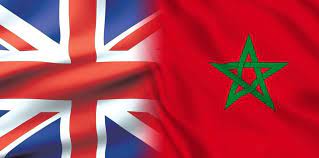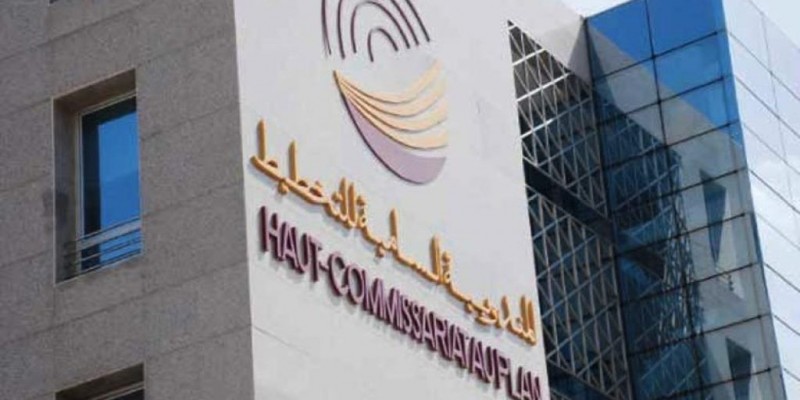The United Kingdom is actively pursuing comprehensive trade and security post-Brexit agreements, the main aim being to unlock the significant opportunities abounding across the African continent, and particularly in Morocco, the gateway to Africa.
Actually, since leaving the European Union, the UK has been eyeing the Moroccan market, considering it one of the promising markets in Africa.
Former Prime Minister Boris Johnson who saw, while in power, keen interest in this initiative, had reportedly conveyed to associates that the doubling of trade with Morocco since Brexit, even before the signing of an advanced trade deal, exemplifies the benefits of leaving the European Union. In another post-Brexit triumph for the UK next year, Morocco is seeking a trade and security agreement with the UK, positioning itself as the “gateway to Africa” in terms of goods and access, reports the Daily Express in a story focusing on the UK’s relations with the North African Kingdom.
The prominent African player is already in contact with the UK’s Department for International Trade, led by Kemi Badenoch since February 2023.
Morocco sees itself as an ideal African trade partner for the UK post-Brexit due to its regional stability and, as a monarchy under the current rule of King Mohammed VI, shares similarities with the UK.
Speaking exclusively to the Daily Express, Morocco’s Ambassador to the UK, Hakim Hajoui, quipped that those complaining about post-Brexit EU product prices, such as tomatoes, can obtain higher quality and more cost-effective options from his country.
Morocco currently supplies 45% of tomatoes in the UK market, which are not only cheaper but also more sustainable, avoiding the use of artificial heating systems like those produced in the Netherlands.
“Ambassador Hajoui said, ‘Buy your tomatoes from Morocco!'” However, he emphasized that there are many more significant opportunities with his country, including energy. “Morocco has heavily invested in renewable energy and has the potential to contribute to the energy security of its strategic partners,” he added. Additionally, Morocco manufactures 700,000 cars annually and the industry is still growing.
“In terms of cooperation, the prospects for an agreement with the UK are extremely promising, encompassing both trade and security sectors,” stated Hajoui.
At the cultural level, Morocco is increasingly turning towards the UK and moving away from its previous colonial power, France. “All of this is happening in a context of natural, organic change in Morocco, especially among younger generations who are now fluent in English, which is crucial for business,” the diplomat said.
The growing ties between the two countries were evident when Morocco chose the UK over France as an international aid partner after the devastating earthquake earlier this year, the daily recalled.
The significance of a trade agreement would extend far beyond Morocco.
“Morocco is the gateway to Africa for the UK. When examining trade possibilities for the UK, there is a considerable chance not only in Morocco but also in tapping into Africa, which is poised to become the largest consumer market of tomorrow. In this regard, Morocco is the second-largest African investor on the continent, with two-thirds of our foreign direct investments going towards the continent,” the diplomat stated.
Besides, an agreement with Morocco would offer more than just trade; it would enhance security. As a major regional player in North Africa and the Middle East, with the Israel-Gaza conflict causing increased uncertainty, Morocco proposes security support for food and energy supplies, as well as defense and intelligence.
However, an agreement will likely depend on the UK’s participation alongside the US, Germany, the Netherlands, and Spain in helping Morocco address a major issue for the Kingdom, the regional Sahara conflict.
The region has been in dispute since 1976, when the self-proclaimed Sahrawi Arab Democratic Republic emerged. Morocco’s claim has been confirmed by international courts, and a proposed solution for limited self-governance has been put forward. Still, the UK has not yet lent its support to this North African ally.
The ambassador noted, “Over the past years, we have received tremendous support from the US, European countries, including Spain, Germany, as well as the Netherlands, Belgium, and others. This adds to the dozens of Arab and African countries that have opened consulates in the Sahara in clear recognition of Morocco’s sovereignty over its Sahara. So, what about the UK? That’s the question everyone is asking.”
At the level of bilateral trade, Morocco-UK relations have experienced an “unprecedented boom” since the two countries signed an association agreement in 2019 after Brexit.
Bilateral cooperation has been consistently dynamic since then, as evidenced by the rapid growth in trade, with exchanges having increased by nearly 50% between 2019 and 2022, and Moroccan exports have almost tripled since the agreement came into effect.
In the aftermath of the association agreement trade between the two countries increased from MAD 15.3 billion in 2019 to MAD 22.9 billion in 2022.
At a time when economic cooperation is blossoming, this closer relationship between the two countries is having a positive impact on tourist exchanges, the UK having made efforts to facilitate visa procedures for Moroccans and British citizens are increasingly eager to visit Morocco, which receives nearly 600,000 of them each year.



